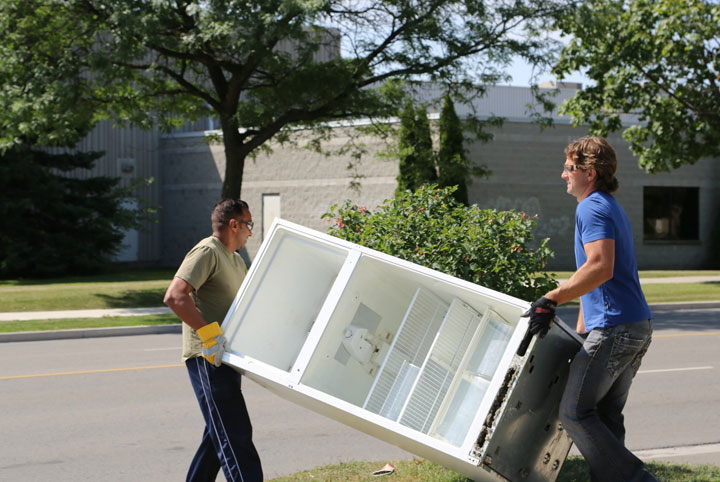
Scott McGillivray is a real estate expert and host of HGTV Canada’s Income Property and Moving the McGillivrays.
The landlord tenant relationship is like any other business relationship. And like with any business arrangement, you can’t expect to get something without giving something back in return. I’ve dealt with hundreds of tenants over the years, and I’m often willing to negotiate on rent or other amenities – provided they’re willing to do something that will benefit my business in the long run. I can promise you that whether you’ve lived in the building a long time, or you’re just moving in, there are ways to effectively negotiate with your landlord so that you both come out on top.

Do Your Research
Part of negotiating is understanding the building. If you’re moving into a popular place with a long waiting list, you’re probably not going to get a significant discount on the rent. But that doesn’t mean there aren’t other opportunities. Are there issues with pets in the building? Agree not to get one. Issues with tenants smoking? Sign something saying you won’t smoke. Or throw loud parties, or have overnight guests, or use certain amenities. Think beyond the rent and make your landlord an offer.
Pay in Advance
Money talks. If you can offer to pay a portion of your rent up front – say six months in advance – a landlord may be willing to give you a discount. Knowing that they won’t be chasing you for rent, and the fact that they can start earning interest on the money, may be worth the cost of a small discount.
Offer to Stay Longer
If your landlord is asking you to sign a 12 month lease, and you know you’re planning to re-sign the following year, ask if you can commit to the two years right away. Signing a longer lease gives the landlord the security and the peace of mind of knowing they won’t have to go through the whole process again in 12 months.
Give Something Up
Sounds counterproductive, right? Wrong. If your rental unit comes with a parking spot and you don’t have a car and can’t sublet it, offer to give it up in exchange for a reduction in rent. Parking spaces can be very valuable, and if you’re not going to use it, your landlord can rent it out for a nice sum of money.

Help Out
People living in smaller buildings can often negotiate with the landlord by offering to help out with some of the building maintenance. Taking out the garbage, mowing the lawn, and shovelling snow are all things landlords are usually required to do – and they’re a pain if they don’t live on site. Offer to take care of these small jobs in exchange for reduced rent.
Negotiate Move In and Move Out Dates
Moving in and out during off-peak times can be a great negotiation tactic. If you offer to move in during slow periods, such as the winter, or mid-month, it can make your landlord’s life easier. Likewise, ending your lease and moving out in the summer gives your landlord time to get the unit ready and find new tenants for peak back-to-school time. These seemingly small things can be very helpful to building management, so discuss it with your landlord and see what he or she can offer in return.
Be Reasonable
Whatever you do, don’t go into a negotiation with an aggressive attitude. Be polite, be reasonable, and know what you’re worth. If you are clean, respectful, have a great credit history and pay your rent on time – tell them. As a landlord I can tell you that a good tenant is worth far more than a bad tenant, so show them they’re lucky to have you!
Images courtesy of Skit Inc.
HGTV your inbox.
By clicking "SIGN UP” you agree to receive emails from HGTV and accept Corus' Terms of Use and Corus' Privacy Policy.



